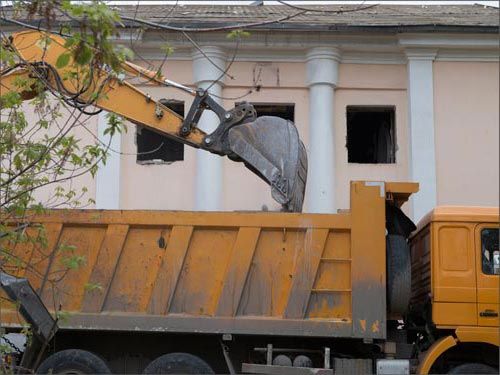
Construction and demolition waste account for a high percentage of the volume in America's landfills. You can do your part to mitigate that number by making your demolition projects as green as possible.
Here are four things to work on if you want to decrease the environmental footprint of your residential demolition.
1. Opt for Deconstruction Wherever Possible
Also called selective demolition or selective tear-downs, deconstruction is a very controlled process. Instead of just smashing things up so that they all end up in a pile of assorted rubble together, deconstruction involves taking the building apart piece by piece.
Often there will be many objects and materials inside the building that can be recycled, repurposed or even reused for the same application in another building. Of course, usability depends on the condition of the materials; for example, if recent water damage is present, any affected wooden components may be unsuitable for reuse but may still be recyclable.
2. Choose an Eco-Friendly Company
The contractor or company you select can have a big impact on how eco-friendly your demolition turns out to be. First of all, you'll need to make sure the company is willing to work with you on recycling or reclaiming materials. They'll also need to be competent at post-demolition cleanup so that no leftover waste will remain and damage the surrounding ecosystems.
Secondly, you'll want to look for eco-friendly business practices. These can range from generalized ecofriendly practices like paperless billing to targeted practices such as biodiesel-run company vehicles and construction equipment.
3. Donate or Sell Materials for Re-Use
Depending on the condition of the items and materials you manage to reclaim, you may have to send a large portion of the materials to a recycling facility and, sadly, some will have to end up in a landfill. Composite decking materials, for example, are not recyclable. So if you deconstruct a deck, any decking slats too damaged for reuse will likely have to be thrown away.
However, those materials that can be reclaimed should be sorted by condition and value. Some (such as high-end plumbing fixtures and appliances in working order) you may even be able to sell for a profit, while others can go to a charity such as a Habitat for Humanity Restore.
The donation option will also give value back to the community and the economy, as well as to the environment.
4. Consider Re-Using Items Yourself
Depending on the extent of the demolition and what you have planned for the site, you may even have an opportunity to re-use some items on the same location. This is the most eco-friendly outcome possible, since it doesn't involve transporting the materials.
For example, if you're just gutting your bathroom or laundry room with renovation in mind, you may want to buy all new appliances and fixtures. However, you may still be able to find a use for your laundry room sink; maybe you could move it to the garage rather than shipping it off the property.
These four tips can help you adjust your demolition project more towards the eco-friendly end of the spectrum. Although it's possible you won't be able to follow all four of these tips, any steps that you take can really make a big difference.
Whether you need help with a complete demolition or with a selective demolition, W. R. Beach, Inc., is the right choice for the job. We're experts at post-demolition site cleanup, and we strive to increase the percentage of demolition materials that we recycle after each job. Call today or use our website to contact us for more information about how we can help with your project.
